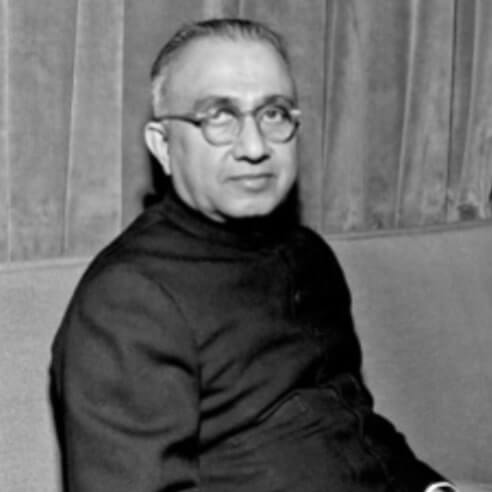Early Life:
Benegal Shiva Rao was born on 26 February 1891 in Benegal, a small village in Udupi, Karnataka. His father was an eminent medical practitioner and his brothers – Sanjiva Rao, Narsing Rau and Rama Rau – would go on to have illustrious careers in the fields of education, civil and judicial services.
Following his brothers’ footsteps, he went to Presidency College, Madras and earned his MA degree. But unlike them, he turned away from the civil services and opted instead for a career in journalism.
Role in India’s Independence Movement:
Through his oldest brother Sanjiva Rao, Shiva met Annie Besant, a theosophist-educator and leader of the Home Rule movement. He joined Besant’s newspaper New India in 1917 as a sub-editor. At New India, he developed his political skills – Rao started attending and giving speeches at Home Rule meetings.
In the mid-1920s, Rao began engaging with constitutional reform initiatives. He teamed up with Liberal Party leader Tej Bahadur Sapru to critically examine the Montague-Chelmsford Reforms. He joined his long-time mentor Annie Besant to draft the Commonwealth of India Bill in 1925. Rao was also a participant in the Indian Round Table Conference held in London between 1930-31.
Rao was involved in trade union politics. As a trade union leader, he went on to become the delegate on behalf of Indian workers at the International Labour Organisation Conference in Geneva (1929-30) and the President of the National Trades Union Federation in its Calcutta Session (1937).
In the 1930s, Rao was a journalist for the The Hindu (since 1934) and The Manchester Guardian (since 1935). His political connections combined with his journalist role got him direct access to some of the main actors in the Indian independence struggle including members of the Congress Party and the Muslim League, Mahatma Gandhi and top British officials. All these actors often used Rao as an interlocutor in political negotiations.
Contribution to Constitution Making:
Rao was elected to the Constituent Assembly from Madras in 1946 under a Congress Party ticket. He hardly spoke in the Assembly.
His biggest contribution to constitution-making was The Framing of India’s Constitution: Selcted Documents – a 6 volume compilation of documents relating to India’s constitution-making process.
Later Contributions:
Rao was a member of the Indian delegation to the United Nations in 1947, 1948, 1949 and 1950.
He was elected to India’s first Lok Sabha (1952-56) from the South Kanara constituency (Present day Mangalore) followed by a term at the Rajya Sabha (1957-60).
On 15 December 1975, Rao passed away in New Delhi.
Key Writings:
In addition to The Framing of India’s Constitution (6 volumes), Shiva Rao wrote extensively for New India, The Hindu, The Manchester Guardian, Baltimore Sun and the New York Nation.
His other notable works include Select Constitutions of the World (1937), The Industrial Worker in India (1939) and India’s Freedom Fighters: Some Notable Figures (1972)
In the years before his death, Rao was working on his autobiography.
- Constitutionalism as Discipline: Benegal Shiva Rao and the Forgotten Histories of the Indian Constitution by Arvind Elangovan (South Asia: Journal of South Asian Studies, 2018)
- The Benegal Brothers: The Story of a Family and its Times by Kanchan Karopady Bannerjee (Ameya Prakashan, 2010)
- A Mangalorean PM and his RBI Governor Brother: The Extraordinary story of the Benegal Brothers by Dr. Anil Shetty (Mangalore Today, 2019)

